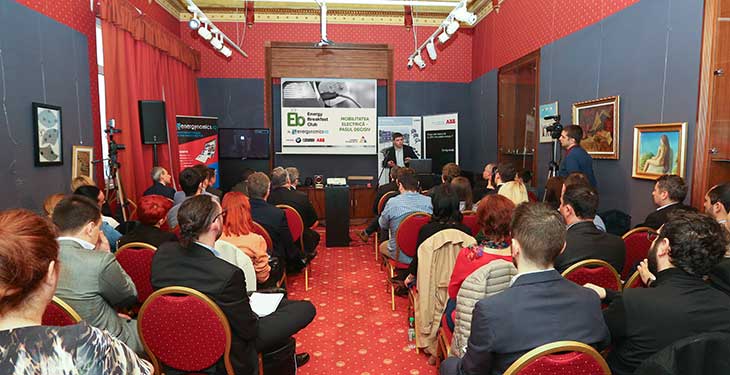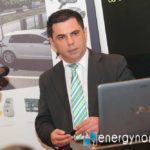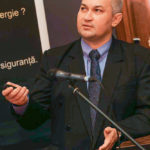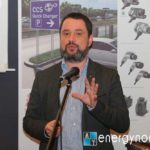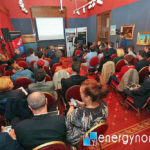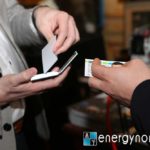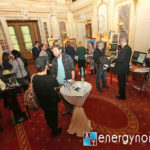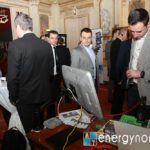Electric mobility is one of the trends which is at present discretely reshaping the transportation and is preparing a major revolution in lifestyles in all urban areas. “The electric car does more than simply reducing pollution by decreasing toxic emissions” – it was the common idea emphasized by all the four guest speakers in the March 1st edition of the Energy Breakfast Club, the third event energynomics.ro dedicated to the electric mobility related issues. (Follow-up article on the 2015 event and on the 2016 event)
The dialogue was opened by Ştefan Roşeanu, president of the Association for Metropolitan Mobility (AMM) and executive director of ETL Mobility Cluster, who addressed the electric mobility for people, with a focus on the challenges in ensuring sustainable urban mobility.
2,3 billion euros available for sustainable mobility
The mandatory objectives imposed at European level are far from being achieved, said Ştefan Roşeanu who nevertheless welcomed that EU policies on public transportation have improved the strategic and operational context in Romania, in this regard. The Sustainable Urban Mobility Plans are mandatory for the county residence cities and for the institutions that aim to attract European funding. Roşeanu estimated that “approximately 2,3 billion euros are available for sustainable mobility, through Axis 3 and Axis 4 of the POR 2014-2020”. Only part of this money will go towards electric vehicles and charging stations for EVs, while the largest amounts will be allocated to other forms of electric transportation: trams, trolleybuses, buses, railways and subway.
DOWNLOAD THE PRESENTATION OF ŞTEFAN ROŞEANU
Present in the assistance, representatives of the Environmental Fund Authority confirmed that the program of the Ministry of Environment to finance the installation of electric charging stations will continue. Until the end of March, AFM will communicate the results of the first session of collecting the financing files. The support program remains one of the priorities of the AFM, along with the Scrappage and Green House programs.
Municipalities are mainly interested in electric buses
A massive and rapid growth of the fleet of EVs in Romania is not anticipated and not desirable either, in the absence of an analysis regarding the additional pressure that this phenomenon might put on the transport systems and on the electricity distribution networks. “All the challenges posed by the EVs technology are not yet understood at city halls level. There are still only talks about ‚how many electric buses to buy’, ‚how many electric vans to buy’ etc”, warned Ştefan Roşeanu. Detailed and adapted analysis for each municipality are required, in order to identify in advance the most suitable connection points – as one simple example of what should be included in the mobility plans of major cities.
Cities that have tramways, trolleybuses or subways continue to invest in these forms of electric mobility and a great example in this regard is Cluj, said Ştefan Roşeanu. Other municipalities that are active and interested in electric buses are Timisoara, Suceava, Alba Iulia and Slobozia, and also cities having with financial limitations as the main obstacle, such as Targoviste.
Charging systems dedicated to electric mobility
Cătălin Marius Lepinzean talked about Phoenix Contact E-mobility, a company part of the German group Phoenix Contact, a leader in the production of power connection and industrial automation technology. Active in Asia, Europe and North America, the Group has a portfolio of products tailored to the technical standards in each of these areas and proposes to the manufacturers of charging stations for electric cars charging systems and charging controllers adapted to each market segment. Also, Phoenix Contact E-mobility works with producers of various kinds of electric vehicles – from motorcycles, buses and vans – to which it provides components and systems, and also technical support for development of customized solutions.

DOWNLOAD THE PRESENTATION OF CĂTĂLIN MARIUS LEPINZEAN
Currently, 60-70% of the market in Romania is represented by charging stations “at key”, while the rest are stations made by integrators. Phoenix Contact expects the shares to gradually equalize, because “stations made by integrators provide a greater flexibility in development of larger networks, the software architecture included”, explained Lepinzean.
“Based on the information we have from carmakers, we expect an upward accelerated trend in the market in the following period. Interest and investment coming from each producer are clear signals that we need the electric cars to gradually replace the existing fleets”, says Catalin Marius Lepinzean.
Complete electro-mobility solutions from ABB
Csaba Kopatz, Business Development Manager at ABB Romania, presented the view of a global leader in the electro-mobility field, offering integrated solutions throughout the entire value chain: starting with power generation from renewable sources, and up to monitoring each charging station commissioned to the beneficiaries. The fast charging stations installed by ABB in Europe indicate, at a visual level too, the stage of this technology penetration, at present.
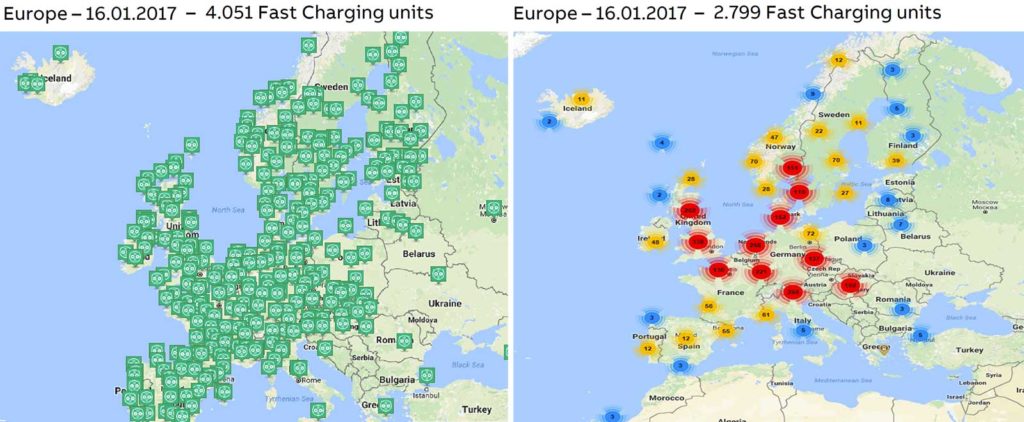
DOWNLOAD THE PRESENTATION OF CSABA KOPATZ
Csaba Kopatz also presented a comparative analysis of the efficiency offered by three types of alternative fuels (biofuels, hydrogen, electricity) in terms of area of land occupied. On average, the energy produced per one square meter allows an electric vehicle to travel a distance of 7 kilometers (on biofuels), 160 kilometers (on hydrogen) or 380 kilometers (on electricity harnessed by photovoltaic technology).
With manufacturing facilities dedicated to electrical charging located in Italy, Hungary and China, ABB is a global partner for all major EV manufacturers, and faithful to its “Follow the car” philosophy. The trend is that the power of the charging stations will grow, in order to achieve, fast enough, levels of 150-350 kW, compared to the most common standard now – 50kW.
In his turn, Marian Florescu, Commissioning Engineer at ABB, presented the Drive Care web based tool for real-time monitoring and configuration, available to the beneficiaries of ABB electric charging stations.
The car of the future is electric, autonomous, connected and shared
The last intervention came from Alexandru Şeremet, BMW Communication Manager, who referred to the car of the future, in the context of this major paradigm shift supported by an unprecedented development of new technologies. “In 15 years the way we use and how we relate to the car will change dramatically, because EVs are increasingly becoming the launching platform for new technologies”. Alexandru Şeremet mainly talked about the concepts of car-sharing and autonomous car, both experiences that will change how we use the car.
BMW has announced that the next generation of electric cars (2018-2020) will bring increased battery capacity (150-200 kWh) and charging stations with powers of 350kW. In terms of electric cars, the BMW Group will propose in this order the MINI Electric (2019), BMW X3 Electric (2020) and BMWi Next (2021) models, as well as an extended range of plug-in models. “BMW Group’s strategy is to develop one plug-in hybrid version for each of our models”, explained Şeremet. “A plug-in hybrid model is at the same price level as an oil based model and at the same level of power and cheaper than a diesel, while offering a 30-40 kilometers range, enough for home to office and back commuting”.
DOWNLOAD THE PRESENTATION OF ALEXANDRU ŞEREMET
Over 60 representatives from ABB, Administrația Fondului pentru Mediu, Alan Dick Romania SRL, ALD Automotive, ATREA, Automobile Bavaria, AVER – Asociaţia pentru promovarea vehiculelor electrice în România, BMW, Code for Romania, Combridge, Distribuţie Energie Oltenia, Edusa Green Energy, Electrica SA , Electromagnetica, Enel Energie Muntenia, Engie Romania, ETL PLUS, EVCONNECT, eXcent Romania, Exe Green Holding, Institutul Naţional de Cercetare-Dezvoltare în Informatică, Luxten Lighting Company, Mitshubishi, MOL, MoneyCorp, New Kopel, NOMADE, Phoenix Contact, Pony Car Sharing, ROA Grup, Romexpo, Safetech, Stratum Enclosures, Suite Home, Talent Reserve, TIAB, TMC e-mobility.ro, Toyota, Ţiriac Auto attended the presentations and participated in discussions.
The event was organized by energynomics.ro and supported by our partners: ABB, BMW and Phoenix Contact.
Participation
This year, energynomics.ro aims to organize at least 10 Energy Breakfast Club meetings. The schedule and the proposed themes for 2017 are available in the Energy Breakfast Club dedicated page.
